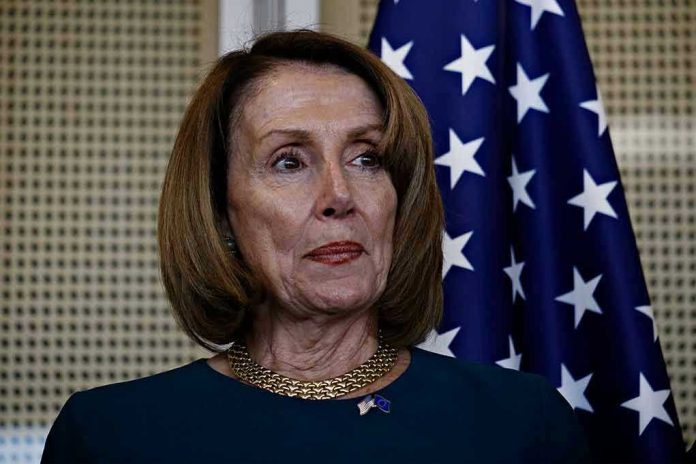
A single congressional career produced a 16,930% return in the stock market—raising questions that ripple far beyond Wall Street and Capitol Hill.
Story Snapshot
- Nancy Pelosi’s reported stock market returns are drawing renewed scrutiny as she prepares to leave Congress
- The sheer scale of her gains—reportedly 16,930%—shocks even seasoned market watchers
- Pelosi’s trading activity reignites debate over lawmakers’ access to nonpublic information and the ethics of congressional trading
- Calls for legislative reform escalate as voters demand clarity on the boundaries between public service and personal enrichment
Pelosi’s Eye-Popping Stock Windfall: Numbers That Stop You Cold
Nancy Pelosi’s tenure in Congress will be remembered not just for its political drama, but for a jaw-dropping statistic: a reported 16,930% return on stock trades made during her years as a lawmaker. Such a number doesn’t belong in ordinary financial circles—it belongs in the realm of legend, or perhaps, in the nightmares of those who believe in a level playing field. In a country where the average 401(k) returns a fraction of that over a career, the discrepancy forces everyone to ask how such a feat is possible for a public servant whose salary is taxpayer-funded.
Accusations of congressional insider trading have simmered for decades, but rarely have raw numbers like these seized public attention. When news broke that Pelosi would step down, analysts pored over her financial disclosures with renewed vigor. Many Americans, already skeptical of the political class, saw the reported gains as evidence that the system is rigged for those on the inside. Whether or not Pelosi violated any laws, the optics alone ignite outrage and skepticism. The question is no longer whether lawmakers can outpace the market—it’s whether they should be allowed to play at all.
How Congressional Trading Became a Lightning Rod for Public Distrust
The Pelosi story does not stand alone; instead, it fits a pattern that has undermined public faith in Congress for years. Multiple legislators have faced scrutiny for timely trades made before major policy announcements or market-moving news. Critics argue that lawmakers possess privileged access to information that could affect markets, even if they do not act on classified intelligence. The STOCK Act, designed to curtail insider trading by Congress, was passed in 2012 to address these concerns. Still, enforcement has been lackluster, and loopholes remain. The sheer magnitude of Pelosi’s reported returns forces a reckoning with the current rules: are they enough, or are they merely window dressing in a house built on conflicts of interest?
Defenders of congressional trading maintain that lawmakers are subject to the same disclosure requirements as everyone else, and that the public can track their trades in real time. Yet the public’s trust has eroded. When the spectacle of trading eclipses the business of governing, the institution itself suffers. The debate is no longer confined to the halls of Congress or the pages of financial news—it is a kitchen-table issue, stoking anger and cynicism among voters who see a double standard at work.
Reform or Resignation: Where Does Congress Go From Here?
The debate over congressional stock trading has become a litmus test for political integrity in the eyes of many Americans. Several proposals have emerged to ban or severely restrict trading by lawmakers and their immediate families. Supporters argue that these measures are necessary to restore faith in government and ensure that public servants work for the country, not their own portfolios. Opponents warn that such bans could deter talented individuals from entering public service or unfairly penalize lawmakers for legal investment decisions.
Nancy Pelosi’s exit from Congress marks a turning point. As lawmakers debate new restrictions, the public’s appetite for reform appears insatiable. The story of one lawmaker’s market-beating run is now a symbol—a flashpoint in the ongoing struggle to define the relationship between power and profit in American life. The question left hanging in the air: If this is legal, should it be?
Sources:
Fact Check Team: Pelosi’s retirement highlights congressional wealth, stock trading issues



